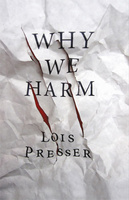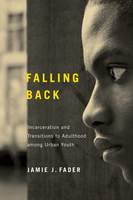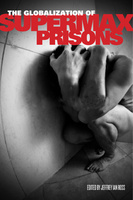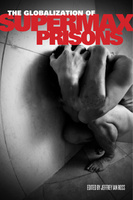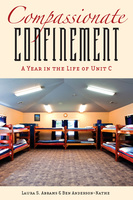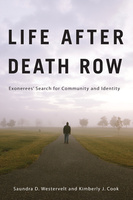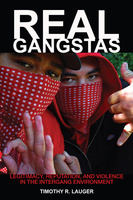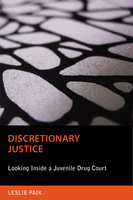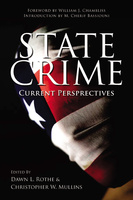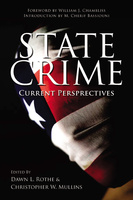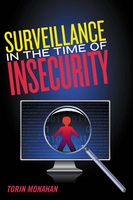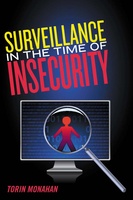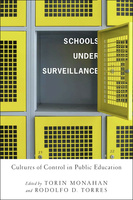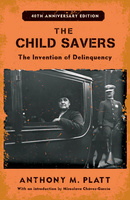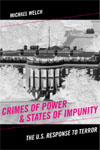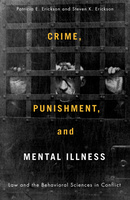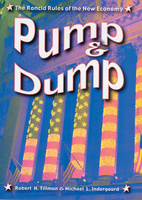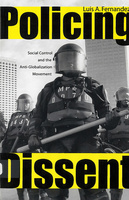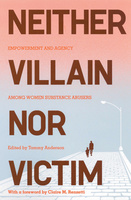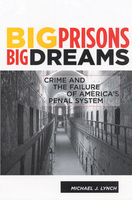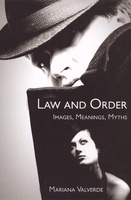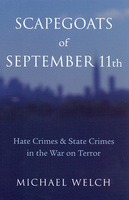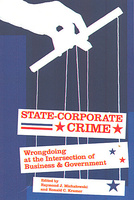Tough on Hate?
The Cultural Politics of Hate Crimes
Tough on Hate is the first book to examine the cultural politics of hate crimes both within and beyond the law. Drawing on a wide range of sources, including personal interviews, unarchived documents, television news broadcasts, legislative debates, and presidential speeches, the book challenges readers to reconsider their understanding of hate crimes and raises startling questions about the trajectory of civil and minority rights.
Tough on Hate?
The Cultural Politics of Hate Crimes
Tough on Hate is the first book to examine the cultural politics of hate crimes both within and beyond the law. Drawing on a wide range of sources, including personal interviews, unarchived documents, television news broadcasts, legislative debates, and presidential speeches, the book challenges readers to reconsider their understanding of hate crimes and raises startling questions about the trajectory of civil and minority rights.
Why We Harm
This timely book scrutinizes accounts of acts as diverse as genocide, environmental degradation, war, torture, terrorism, homicide, rape, and meat-eating in order to develop an original theoretical framework with which to consider harmful actions and their causes. Chapter by chapter, it examines statements made by perpetrators of a wide variety of harmful actions, identifying the logics they share that motivate, legitimize, and sustain them and mapping out strategies for reducing harm.
Falling Back
Incarceration and Transitions to Adulthood among Urban Youth
Falling Back documents the transition to adulthood for young inner-city men of color who have, by the age of eighteen, already been imprisoned. It is based on over three years of ethnographic research with black and Latino males on the cusp of adulthood and incarcerated at a rural reform school. The book portrays the complexities of human decision-making as these men strove to “fall back,” or avoid reoffending and become productive adults.
The Globalization of Supermax Prisons
“Supermax” prisons are typically reserved for convicted political criminals such as terrorists and spies and for other inmates who are considered to pose a serious ongoing threat to the wider community, to the security of correctional institutions, or to the safety of the people within. The Globalization of Supermax Prisons examines why nine prominent advanced industrialized countries have adopted the supermax prototype, paying particular attention to the economic, social, and political processes that have affected each nation.
The Globalization of Supermax Prisons
“Supermax” prisons are typically reserved for convicted political criminals such as terrorists and spies and for other inmates who are considered to pose a serious ongoing threat to the wider community, to the security of correctional institutions, or to the safety of the people within. The Globalization of Supermax Prisons examines why nine prominent advanced industrialized countries have adopted the supermax prototype, paying particular attention to the economic, social, and political processes that have affected each nation.
Compassionate Confinement
A Year in the Life of Unit C
This ethnographic text brings to light the challenges and complexities inherent in the U.S. system of juvenile corrections. Building on over a year of field work at a boys’ residential facility, the authors provide a context for contemporary institutions and highlight some of the system’s most troubling tensions. The book provides narratives, observations, case examples, and recommendations for rehabilitating the system. A detailed appendix on conducting field research is useful for individuals in the social sciences and helping professions.
Women on Ice
Methamphetamine Use among Suburban Women
Women on Ice is the first book to study exclusively the lives of women who use methamphetamine (ice, speed, crystal, shards) and the effects of its use on their families. In-depth interviews with women in the suburban counties of one of the largest metropolitan areas in the U.S. chronicle the details of their initiation into methamphetamine, the turning points into problematic drug use, and, for a few, their escape from lives veering out of control.
Life after Death Row
Exonerees' Search for Community and Identity
Life after Death Row examines the post-incarceration struggles of individuals who have been wrongly convicted of capital crimes, sentenced to death, and subsequently exonerated. Drawing upon research on trauma, recovery, coping, and stigma, the authors weave a nuanced fabric of grief, loss, resilience, hope, despair, and meaning to provide the richest account to date of the struggles faced by people striving to reclaim their lives in contemporary American society after years of wrongful incarceration.
Real Gangstas
Legitimacy, Reputation, and Violence in the Intergang Environment
Real Gangstas relies on the tradition of urban ethnography to provide a unique and intimate look at the lives of street gang members in Indianapolis, IN. For eighteen months, Timothy R. Lauger interviewed and observed a mix of fifty-five gang members, former gang members, and non-gang street offenders, many from the “Down for Whatever Boyz.” Through this research, Lauger is able to understand and explain the reasons for gang membership, including a chaotic family life, poverty, and the need for violent self-assertion in order to foster the creation of a personal identity.
Discretionary Justice
Looking Inside a Juvenile Drug Court
The Last Neighborhood Cops
The Rise and Fall of Community Policing in New York Public Housing
State Crime
Current Perspectives
State Crime
Current Perspectives
Mass Deception
Moral Panic and the U.S. War on Iraq
Surveillance in the Time of Insecurity
Surveillance in the Time of Insecurity
Schools Under Surveillance
Cultures of Control in Public Education
Dangerous Exits
Escaping Abusive Relationships in Rural America
The Child Savers
The Invention of Delinquency
Crimes of Power & States of Impunity
The U.S. Response to Terror
Crime, Punishment, and Mental Illness
Law and the Behavioral Sciences in Conflict
Pump and Dump
The Rancid Rules of the New Economy
In Pump and Dump: The Rancid Rules of the New Economy,Robert H. Tillman and Michael L. Indergaard argue that these scandals are symptoms of a corporate governance problem that began in the 1990s as New Economy pundits claimed that advances in technology and forms of business organization were changing the rules.
Policing Dissent
Social Control and the Anti-Globalization Movement
Neither Villain nor Victim
Empowerment and Agency among Women Substance Abusers
Big Prisons, Big Dreams
Crime and the Failure of America's Penal System
Law and Order
Images, Meanings, Myths
In Law and Order: Images, Meanings, Myths, Mariana Valverde draws on examples from film, television, and newspapers to examine these questions and to demonstrate how popular culture is creating an unrealistic view of crime and crime control. Valverde argues that understanding the impact of media representations of courtrooms, police departments, prisons, and the people who populate them is essential to comprehending the reality of criminal justice.
Scapegoats of September 11th
Hate Crimes & State Crimes in the War on Terror
State-Corporate Crime
Wrongdoing at the Intersection of Business and Government
Victims as Offenders
The Paradox of Women's Violence in Relationships
In answering these questions, Miller draws on extensive data from a study of police behavior in the field, interviews with criminal justice professionals and social service providers, and participant observation of female offender programs. She offers a critical analysis of the theoretical assumptions framing the study of violence and provides insight into the often contradictory implications of the mandatory and pro-arrest policies enacted in the 1980s and 1990s. Miller argues that these enforcement strategies, designed to protect women, have often victimized women in different ways. Without sensationalizing, Miller unveils a reality that looks very different from what current statistics on domestic violence imply.



